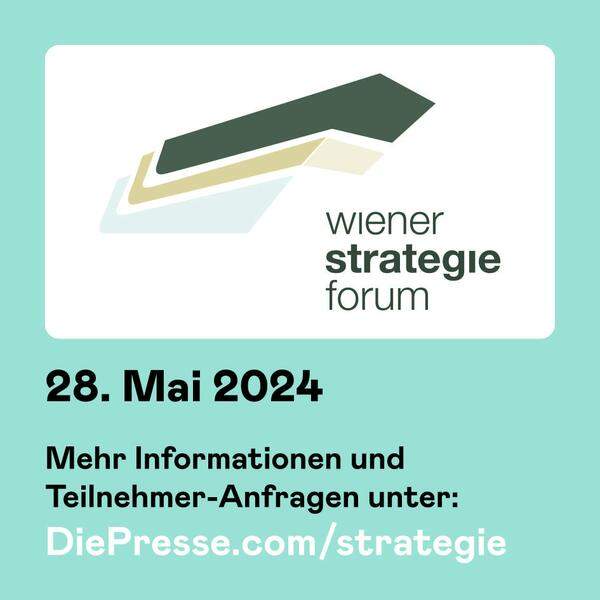artificial intelligence. For knowledge workers, especially strategists, the use of AI tools changes tasks, says Professor Werner H. Hoffmann.
Now strategic business is also a case for artificial intelligence (AI). For the first time, it is possible to automate knowledge work – and strategy work is almost a prototype of this – says Werner H. Hoffmann. He is a member of the Board of Directors of the Institute of Strategic Management at the Vienna University of Economics and Business (WU), a partner at Contrast EY Management Consulting and the mastermind behind the Vienna Strategy Forum, which will be held on May 28 at the University of Vienna.

Werner H. Hoffmann in conversation with Michael Kotrich Miriam Reither
Using AI in strategic work “is not science fiction, but it has long been possible today,” says Hoffman. Moreover, if used sensibly, they bring significant increases in productivity, but they look different at each of the three critical stages – 1. Strategic Analysis, 2. Strategy Formulation, 3. Strategy Implementation and Communication.
In the first stage, AI tools can help collect and analyze data from different sources. With the aim of gaining an understanding of changes in competitors, customers, regulations or technologies and a solid data foundation. To do this, social media channels, i.e. unstructured data sources, can be combed through them, for example. B. They are checked for customer opinions and requests. “This was undoubtedly possible in the past, but only with enormous effort — and it took time,” Hoffman says. Increasing productivity through faster and more accurate analysis using AI is great. For employees, this means they can provide search, display, structure, and aggregate data and recognize patterns. But not the critical discussion of the results.

Diepresse.com/strategy
What can be done more easily and quickly using collected data is strategic foresight, i.e. early strategic detection. The basic requirement is that there is a large amount of data that AI tools can leverage and learn from. This idea is not new either, but its implementation was very complex in the past, and therefore it was rarely used systematically.
In the second stage, strategy formulation, the AI can make suggestions from the patterns it has extracted from the data: “These are standard suggestions based on previous strategies,” says Hoffman. “But they're not really creative. “This is what we as humans are supposed to do. However, he sees a benefit in using AI: “Initial, preparatory and repetitive activities are eliminated.”
To a person

Werner H.
Hoffman He is a member of the Board of Directors of the Strategic Management Institute at WU Vienna, a partner at Contrast EY Management Consulting and the mastermind behind the Vienna Strategy Forum. DiePresse.com/strategy
Even in open strategy processes, for example when employees and external stakeholders are involved in strategy formulation, AI tools can help structure, evaluate and even bring together the wealth of ideas and contributions. A corresponding evaluation network can be developed and pre-trained using artificial intelligence.

“Total coffee aficionado. Travel buff. Music ninja. Bacon nerd. Beeraholic.”








More Stories
Wealthy families take more risks when it comes to money.
Salesforce and NVIDIA Form Strategic Collaboration to Drive AI Customer Innovation
Changing banks causes problems for customers